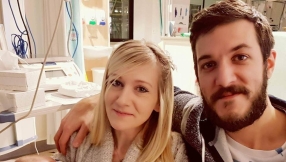Churches that refuse to conduct gay marriages should lose licence - MP
Mike Weatherley, who represents Hove in Parliament, made the controversial call as a way to encourage equality in unions.
Churchmen in the city with the largest number of same-sex households in the country believe any state intervention would impede on religious freedom.
Marriage between people of the same gender is not legal in the UK, but civil partnerships were introduced in 2005 to give couples the same legal protection as if they were wed.
However, it was not until March and the passing of the Equality Bill that religious buildings were given the option of holding same-sex partnerships.
In a letter sent to Prime Minster David Cameron yesterday, the Hove MP claimed that lawmakers behind the initial decision six years ago knew it would result in inequality.
Mr Weatherley said: “As long as religious groups can refuse to preside over ceremonies for same-sex couples there will be inequality.
“Until we untangle unions and religion in this country we will struggle to find a fair arrangement.”
Andrew Manson-Brailsford, of St George’s Church in Kemp Town and rural dean of Brighton, said: “Many people living in our country still believe in God and wish to have a service which both recognises their union and asks for God’s blessing on it.
“One day, I hope that we shall all be free to share the same privileges. Taking them away is not the answer.
“Rather than reduce the religious aspects of marriage, my own hope is that the Church of England will rethink the stand on marriage and allow the priest to be present in other venues.”
The Rev Philip Wells, of Calvary evangelical church in Viaduct Road, Brighton, said: “We’re not a member of the state church.
“As long as independent churches are not breaking the law the state should not be telling them what they should or shouldn’t do – it's a matter of religious freedom.
“The problem we are aware of is that as soon as some service or provision becomes a possibility there’s a risk that people might then demand it as a right.”













